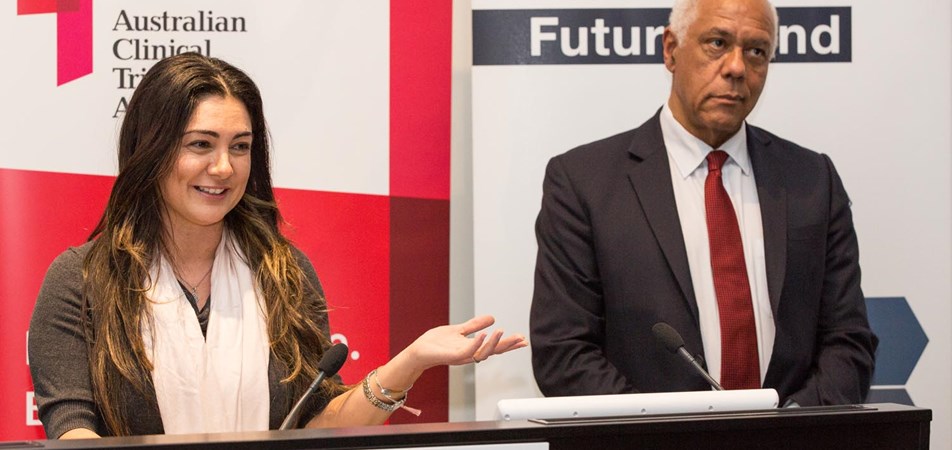To recover your password please fill in your email address
Please fill in below form to create an account with us

24/05/19
CTC’s partnership with Miracle Babies Foundation - a consumer body representing parents of sick newborns - has received the Australian Clinical Trials Alliance’s inaugural award for consumer engagement.
The two partnered up on a trial assessing the best oxygen levels for preterm babies called TORPIDO 30/60. The trial seeks to find out if an initial oxygen concentration of 30% or 60% given to preterm babies when they are born helps to reduce avoidable deaths or long term health problems.
“What happens in the first 15 minutes from birth can dramatically alter the rest of a baby’s life,” said Professor William Tarnow-Mordi, Director of Neonatal and Perinatal Trials at the CTC and co-chair of the trial. “Small variations in routine treatment that premature babies receive soon after birth may significantly influence their survival.”
Past recruitment challenges
When a past trial of a similar nature was unable to secure enough study participants, the CTC invited Melinda Cruz of consumer group Miracle Babies Foundation to help design the trial and alleviate parental concerns.
When a premature baby is born, parents are understandably focussed on the health of their child and choose not to participate in studies they know little about.
Melinda joined Professor Ju Lee Oei of UNSW (the other co-chair of TORPIDO), and Dr Javeed Travadi and Professor Ian Wright from the University of Newcastle on the Trial Management Committee.

 She helped to secure unanimous endorsement by Hunter New England Research Ethics Committee for a waiver of consent for the trial, carefully following the guidance of the National Health and Medical Research Council.2
She helped to secure unanimous endorsement by Hunter New England Research Ethics Committee for a waiver of consent for the trial, carefully following the guidance of the National Health and Medical Research Council.2
Waiver of consent a huge boost
This means that eligible premature babies born before 29 weeks at participating hospitals – particularly those born at nights or on weekends – are automatically included in the trial. Before the waiver of content, these births often missed out on being included in trials.
This small change means TORPIDO could finally answer the question around the best oxygen level for preterm babies after 30 years of research, helping babies to survive and lead healthy lives.
“I am really honoured that the collaboration between parents and researchers is being acknowledged in this way,” said Melinda Cruz, who is also an Honorary Research Associate at CTC. “It is one of the biggest ways to make an impact on advancing health. I am hopeful that this recognition will open more opportunities and that working together will continue to grow.”
TORPIDO is currently enrolling participants with notices to be posted in antenatal clinics and neonatal units. Parents will be informed about it by staff after their baby is admitted for neonatal care, and they will be asked for their permission for the use of secondary data and to participate in a follow up.
More information
Read ACTA’s article on the awards.
NSW Health published an article about this unique and beneficial partnership.
Phase II v Phase III trials
TORPIDO is a Phase III trial. Phase III trials are typically larger than Phase II trials. According to Professor Tarnow-Mordi, there is now empirical evidence that taking part in a Phase III trial is associated with better survival and outcome compared with receiving the usual care outside of the trial environment.1
Further reading